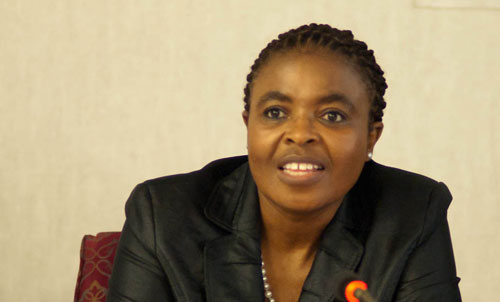
At public hearings in Johannesburg on Thursday, the Independent Communications Authority of SA (Icasa) said it would consider all submissions by interested parties in creating an official definition of what constitutes an “underserviced area” for both Internet access and access to public broadcasting.
The authority received submissions from telecommunications operators, the SABC and other interested parties.
It has previously outlined various requirements for those wanting access to scarce radio frequency spectrum, including access to the spectrum that will be freed up when SA moves to digital terrestrial television.
In its presentation to Icasa, operator Neotel said one of the problems of defining the term “underserviced” stems from the different definitions emanating from past Icasa licences issued to operators. “We believe a clear definition will result in better compliance and will eschew misapprehensions in the sector,” Neotel said in its submission.
The company said Icasa’s definition did not take into account areas where there was no demand for electronic communication services — those that had no coverage but were uninhabited. It suggested Icasa definition of universal access should only include populated areas.
MTN argued that Icasa ought to define universal access more clearly because under the current definition, 98% of SA was underserviced. MTN said SA had 257 local municipalities, 251 of which were listed as underserviced, including six metropolitan municipalities.
It said this suggested that 98% of municipalities would be eligible for money from the Universal Access Service Fund, but said this was untenable and did not address people’s real needs. It said there was no point providing services where there was no one to use them and that where there was existing coverage from another operator it might be prudent to find ways of leveraging this rather than duplicating infrastructure.
In its submission, Vodacom argued that the designation of underserviced areas should be “practical and realistic” and that it needed to be in line with the Electronic Communications Act.
It echoed MTN’s sentiments about the current definition suggesting the entire country was underserviced. It added that although parts of a municipality could be underserviced that wasn’t sufficient cause to designate the entire area as underserviced.
Vodacom suggested that coverage and access were separate issues that needed individual consideration. It said that just because someone lived in an area with coverage, that did not mean they had access.
The operator argued that broadband network penetration should be the real focus in defining underserviced areas and that although mobile had been effective in providing “affordable and reliable access” to electronic communications services, Icasa should focus on fixed-line services, too.
It said surveys suggested that only 10% of households in SA had a fixed broadband connection and that broadband infrastructure was central to the achievement of the goal of “digital inclusion”. The definition of an underserviced area needed to be aligned to government’s broadband policy objectives.
Icasa councillor Miki Ndhlovu said Icasa wanted to arrive at a single definition for the term “underserviced” that would be “practical” and “make sense” to those that would have to implement it. She said Icasa was hoping to finish the process by 31 March. — Craig Wilson, TechCentral
- Subscribe to our free daily newsletter
- Follow us on Twitter or on Google+ or on Facebook
- Visit our sister website, SportsCentral (still in beta)




